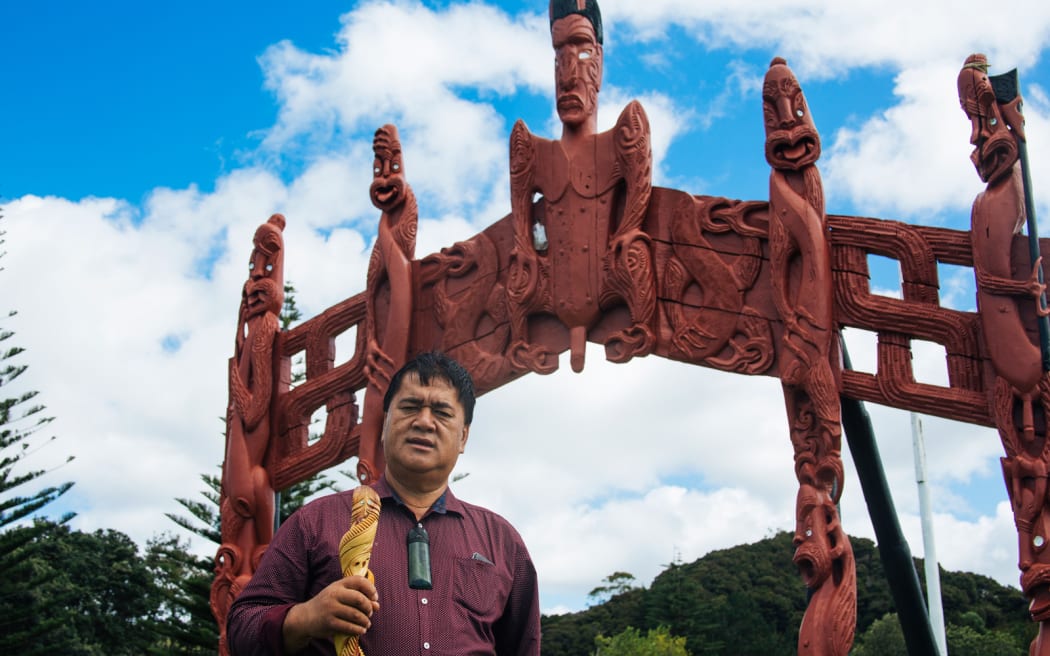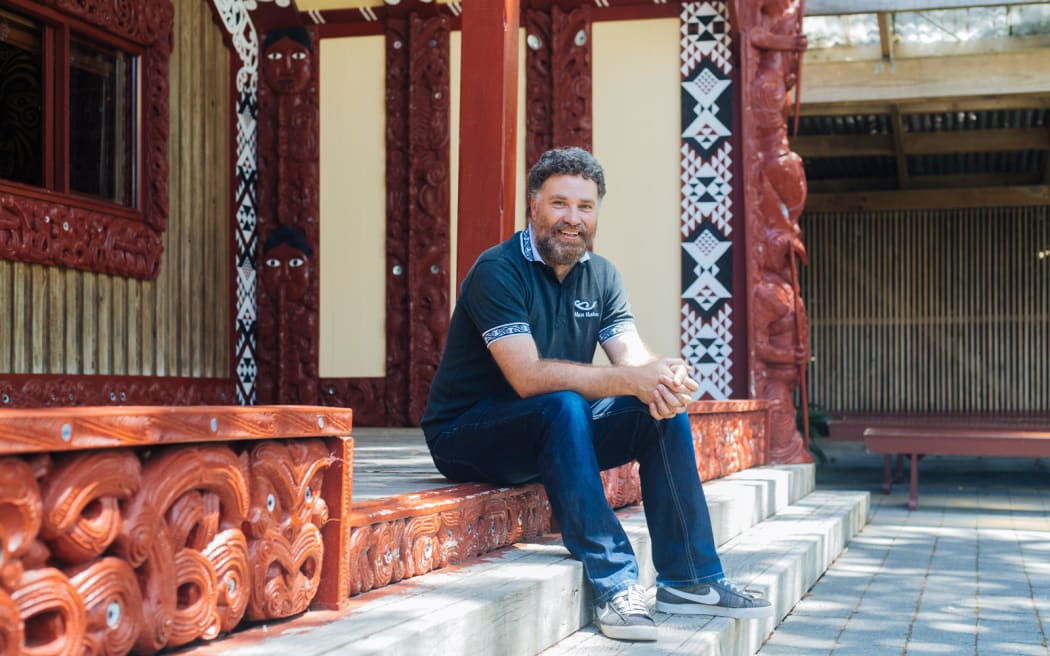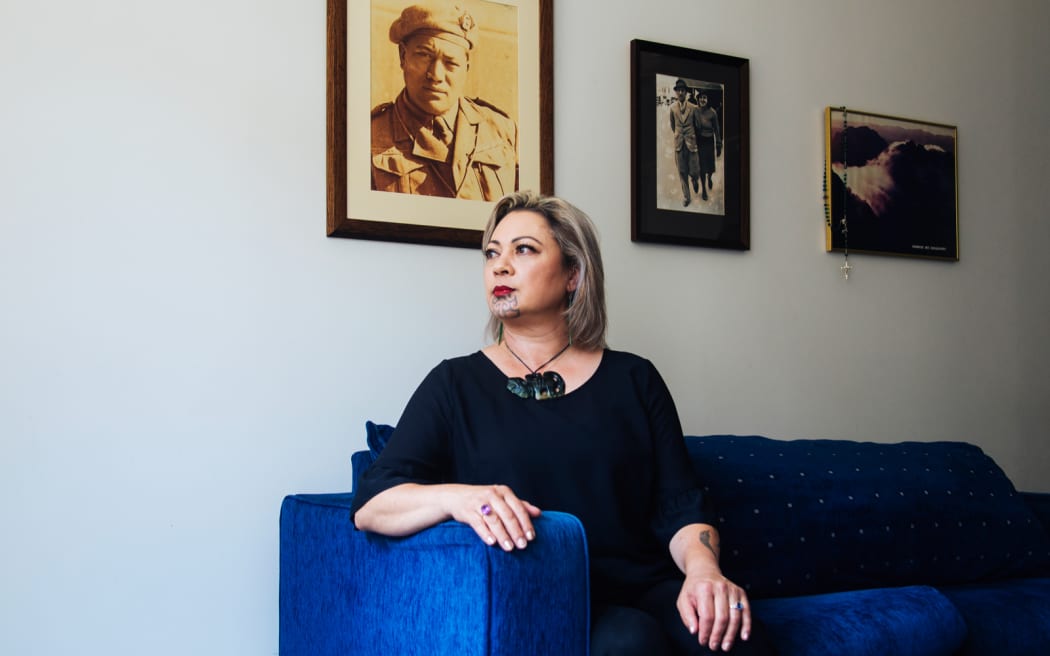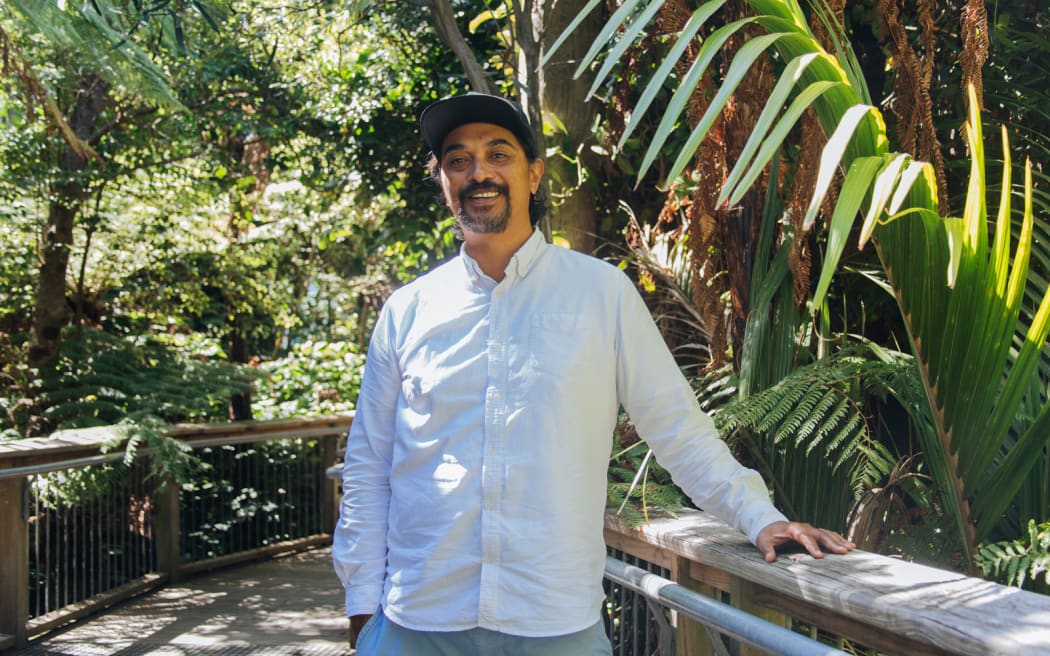History you should know this Waitangi Day.
The Treaty of Waitangi was messy from the get-go. There were different versions, different interpretations and He Whakaputunga - the Declaration of Independence - was signed just five years prior.
On 6 February 1840, over 35 rangatira from the north and representatives of the British crown signed Te Tiriti o Waitangi (the Māori version). It talked about tino rangatiratanga (absolute sovereignty), kāwanatanga (governorship) and taonga.
Copies of the Māori version were taken by the Crown to iwi and hapū around the country.
Then a month after the original signing, the English version - the Treaty of Waitangi - appeared in places such as Waikato and Manukau Harbour.
By the end of the signing campaign over 500 Māori chiefs put their mark to what is often held up as the founding document of our nation.
Ever since, there have been disputes, conflicts and uproar between Māori and the Crown.
We travelled from Waitangi to the South Island to talk to members of five iwi about what changed for their people after the Treaty of Waitangi.
HIRINI TAU (Ngā Puhi)

Hirini Tau: "Te Tiriti is where we want to head." Photo: Chevron Hassett/The Wireless
Can you share a little bit about Ngā Puhi and the Treaty?
In 1840, on January the 28th, there was word given by [the British Secretary of the Colonies] Lord Normanby to [Governor William] Hobson to come to this country and take sovereignty and the whole of this land, however he saw fit.
The Treaty of Waitangi was drawn up and given to [Henry] Williams and his son to translate into Māori. Williams was here with Ngā Puhi for quite some time before the coming of Hobson and he knew that the Māori wouldn’t agree.
He put that aside and got the Declaration of Independence and wrote the Māori version. He took it to Hobson the next morning and said: “We are finished, here is what you wrote.”
But instead of translating what [Hobson] wrote, they were translating what was coming from He Whakaputunga, the Declaration of Independence. According to sources he apparently ripped up the Treaty that Hobson had written in the first instance. Hobson was thinking the Māori version was what he had wrote and he was happy.
Te Parore Āwhā, a Ngā Puhi chief took the Māori version from here (Waitangi) to Waikato, but first stopping off at Māngungu and on it’s way down the Hauraki into Waikato. It got to Waikato and they said: “Where is the English version?”
A gentleman had to be there said: "Look, I happened to be at that important meeting and I happen to have the notes in my pocket, let’s have a look at it".
They re-wrote the Treaty of Waitangi and that’s the version that the government of today go by.
My point is that version they go by today is illegal. I’ll tell you why - Hobson only signed the Māori version. That version they are running by never was signed. Never was signed.
Te Tiriti and the Treaty are both there, but what are the effects you are seeing by having the Treaty of Waitangi as the main represented version?
The Treaty of Waitangi today has no satisfaction for Ngā Puhi, nothing whatsoever. Te Tiriti is where we want to head. Te Tiriti opens new or another dimension in the understanding of The Treaty of Waitangi. They claim they have sovereignty, they claim that they have the rights to what they are doing right now.
But we are saying that they have breached Treaty claims and what they should be doing. For me, today the Treaty of Waitangi is still becoming the monster that is swallowing our land, swallowing our resources and just pushing Māori aside and killing us.
Economically it has red tape that stops us. It also you know, when the moment you get a loan from the bank and it’s Māori land they close the book and say “Sorry sir can’t do business with ya”. There is a lot of unfairness going on and I believe that we will get back to Te Tiriti o Waitangi, I believe that.
Lastly, has there ever been a period of time where Ngā Puhi has seen some light?
Ah, no. Ngā Puhi has always been on the backburner ever since 1840. Yet we are the biggest iwi in the country and we are the caretakers of Te Tiriti o Waitangi. There hasn’t been anything major that standouts as the government having helped Ngā Puhi.
Matter of fact, if there is anything they’ll take it away. They will impress things like prisons in our area but they will not stand up a wānanga. We are always the last in this part of the country to see what ever New Zealand has to offer.
Life has been a struggle for Ngā Puhi and there has been nothing gained.
CARWYN JONES (Ngāti Kahungunu)

Carwyn Jones: "One of the things the Treaty does is provides space for people who are not Māori." Photo: Chevron Hassett/The Wireless
After the signing of the Treaty was there a change in the culture of your iwi?
Where I am from, in Wairoa, they never took the Treaty up there. In that sense, there is no change in how the iwi dynamics there were operating.
Further south where there was a signing of the Treaty. [Te Hapuku of Ngāti Kahungunu, a chief from Hawke’s Bay was] only one of two people outside of the north who signed the Declaration of Independence, but he also signed the Treaty of Waitangi. He was someone who was very engaged with the British government, we would think in not so helpful ways, in the sense he sold land and those types of things.
I do not know whether the signing of the Treaty of Waitangi changed that, because he was someone who was engaged the British government anyway.
I do not know if you would say if the signing of the Treaty itself had a big impact on the way Kahungunu went about its business, but it more probably did facilitate more Pākehā settlement across Kahungunu - and of course that changed the dynamics.
There is this huge perspective that the Treaty is just for Māori and it is just a Māori thing, is that true?
I think that is a really good point that people think about the Treaty as only being for Māori. One of the things the Treaty does is provides space for people who are not Māori. So, in lots of ways it is a document for non-Māori, in a sense.
Knowing that where your part of the iwi wasn’t involved in the signing, was there anything from the Treaty that later on influenced your rōpe?
Well, certainly land sales and went sort of all through the Hawke’s Bay area. We had Donald McLean, who was the Crown land purchase officer. He was buying up big swathes of land and also up into Wairoa there were some really significant sales of land.
But often there were these examples of land sales where essentially the Crown would say: “Well we want to purchase these lands and if don’t sell them to us, well then we will confiscate them.” Sometimes we think of land as an economic resource and it certainly has an effect if you do not have that economic base.
Also of course these lands were kāinga (iwi settlements) and that land alienation had the effect of dividing whanau or splitting up where once people were living together to suddenly being divided and splitting apart and that had a huge impact on the relations within the community.
Did Kahunungu see any positives from that period of time?
Well, there were certainly. That was a period of war engagement with Pākehā and that did mean war, trade and commerce. Kahungunu were very interested in engaging. That was also the typical kind of colonial experience where we have (particularly around Wairoa) people in conflicts that occurred.
We had some of our tīpuna being pursued by the Crown, we had some tīpuna (ancestors) fighting alongside the Crown and so it’s a very tricky history we are left with.
HANA O'REGAN (Kai Tahu)

Hana O'Regan: "The real tragedy is to think in 20 years we went from having the biggest landmass in New Zealand to then virtually nothing." Photo: Chevron Hassett/The Wireless
How did the Treaty happen in the South Island?
The Treaty was signed in three places down here Onuku in the Akaroa harbour, Ōtākou in Dunedin and the last place was Ruapuke, this little island in the Foveaux Strait. The reason they took it to Ruapuke because that was the stronghold to the pā of one our tūpuna called Tuhawaiki.
Tuhawaiki was an entrepreneur, sailor and a trader, also he was one of the rakatira.
When the Treaty arrived and the boat came into Ruapuke, they found Tuhawaiki and his men in full naval admiral dress they had bought in Australia. You could imagine the sight of them coming up on their boat and wanting the Māori to sign their paper and Tuhawaiki is standing there all decked out like a naval admiral.
The interesting thing is what he said to them at that time. He said: “Look I have already heard rumours about this Treaty and there are parts of it that isn’t clear. Especially over the aspect of rakatirataka, the sovereignty issue.”
He said: “I just want to be clear that my island of Ruapuke remains under my rakatirataka and I’ll sign your Treaty if you sign mine.”
So, he presented them with a written declaration. That shows even then they know that there were some inconsistencies because they understood English and Māori and read both. They thought, “Hey these two aren’t matching up.”
After the Treaty, what happened down here?
We already had disputes with people just claiming land and settling on it. Then within 20 years, from 1844 to 1864, over 95 percent of our rohe (territory) had gone. That was a very short period of time.
The tragic thing with a lot of those land sales was they were forced. You know when you enter a contract you’re meant to enter it willingly and it’s not a valid contract when you haven’t agreed to it. I can’t say to you that you’re going to get into trouble or this is going to happen to you unless you sign here. That is not valid and it is called a forced sale and you’re not allowed to coerce anyone into doing. Yet the law seemed to not apply and so a lot of our tracks of land sales we were actually forced into sale.
The real tragedy is to think in 20 years we went from having the biggest landmass in New Zealand to then virtually nothing. So within not even a generation, but within a decade, so many of our people were impoverished, did not have access to their mahi kakai, were dying from starvation, landless, their communities were broken up.
Many of them were like refugees in their own land, literally going from place to place.
Now coming into a modern day and contemporary Kai Tahu, what is the progression looking like now for the iwi?
We need to support the development of our people as Kai Tahu. Otherwise we are throwing away all that effort that was made by those previous generations. They sacrificed a huge amount so we could be where we are today.
The future needs to be about now empowering our rakatahi to understand that and be apart of that legacy. Not to stand there with a handout but to give back and contribute to their iwi. And in a whole new way we could only dream of.
HINEMOA RUATAUPARE AWATERE (Ngāti Porou)

Hinemoa Ruataupare Awatere: "... our sense autonomy gives us the power to work together as a collective." Photo: Chevron Hassett/The Wireless
From the signing of the Treaty, how did the aftermath effect Ngāti Porou as a people?
The Treaty itself was an optimistic and hopeful document that acknowledged the tino rangatiratanga (ultimate authority) of the hapū of New Zealand. However, the intense and relentless process of colonisation, whether by military invasion of our lands or the systematic destruction of our economic, social and cultural fabric has significantly changed our landscape.
The Crown acknowledged their Treaty breaches in the Ngāti Porou Deed of Settlement of historical Treaty claims.
What has changed for Ngāti Porou since the signing of the Treaty?
As a result of Crown breaches of the Treaty, Ngāti Porou have lost their hapū autonomy and continue to be subjected to Crown imposed law. They are making huge efforts to retain their reo and cultural institutions which are under threat because they are marginalised to the edges of mainstream society, where English language and cultural mores dominate. We remain a proud people and we continue to aspire to retain our identity and to achieve social, cultural and economic prosperity as Ngāti Porou for the current generations, and for those yet to come.
Ngāti Porou are a dynamic and diverse populace of over 70,000 members and we can be found in all spheres of society, particularly in education, but also in business. We are natural entrepreneurs, our people are called He wiwi Nāti – we have a unique and adventurous spirit.
What were some of the implications that affected the people?
Ngāti Porou retains a strong sense of whakapapa, whanaungatanga, and the mana and kaitiakitanga of our rohe. However, the retention of our mana motuhake as promised in the Treaty did not occur. Due to economic necessity and Crown policies of urbanisation we experienced a diaspora and only around 13 percent of us live in or near the Ngāti Porou rohe.
Our people who remain in our tribal lands retain te reo Māori and they maintain our ahi kaa on our behalf. Those of us in urban areas try to learn and speak te reo and our tikanga.
Ngāti Porou have been majorly involved in establishing urban marae. These marae do not replace our linkages to our home marae, but they do provide a cultural domain where we can be Ngāti Porou and Māori within a mainstream (non-Māori) environment.
What is this meaning of Te Mana Motuhake o Ngāti Porou?
I don’t claim to speak for 70,000 Nātis. There will be many perspectives on Te Mana Motuhake o Ngāti Porou. In a traditional Te Ao Māori perspective, every human-being has their own mana motuhake. So, we think of ourselves as autonomous, self-governing human-beings in our own right.
There is this myth that our sense of collectiveness means that we give over that sense of autonomy., Nno, in fact it’s the opposite, our sense autonomy gives us the power to work together as a collective. We don’t think of ourselves as a flock of sheep, but a pride of lions.
That is particularly true in Ngāti Porou as we have a very strong sense of ourselves as an independent autonomous collective that has our own relationship with the Crown which is based on Te Tiriti.
Our deep sense of tangata whenua is also based on the fact that we have been here since time immemorial. What we say is mai te ao kohatu (from the stone ages).
Our stories of I ngā wa o mua tell us that we were placed on these islands when Māui fished up Te Ika a Māui. We say that when Māui fished up the island he left descendants here and that is us – te iwi pōhatu a Māui. Later waka voyagers came and intermarried with us. We claim direct lineage to Māui.
ATI TEEPA (Ngāi Tūhoe)

Ati Teepa: "I think the closest the Treaty got was Whakatane ..." Photo: Chevron Hassett/The Wireless
Tūhoe people have always maintained a lot of integrity to being Tūhoe, is that still present today within the iwi?
I think so, in a humble way, and humbly I always refer to it (Tūhoe) as the centre of the universe. Well, my universe haha.
I live down here in Pōneke but I never refer to this place as home, I just live here. It’s been good to me down here but I always consider home up in the Urewera.
I think that maybe the isolation has been a good thing for the iwi. I always think about down here in Pōneke you have Te Atiawa, Ngāti Toa Rangatira and all these other iwi and hapū that belong it to these areas. ou have to share it with everyone.
Being up in Tūhoe there is not to many other people and we did not have to share that space to much with other people. I think that’s why we have held our Tūhoe-ness.
To my understanding, Tūhoe was not involved during the signing of the Treaty and they did not see the Crown until 20 years later?
I reckon at the time our tīpuna would have been aware, I think all tīpuna back in the day would have been really savvy. No matter what iwi or hapū you came from they would know what the next-door neighbours’ business was. I think the closest the Treaty got was Whakatane and it was a Bunbury copy of the Treaty. Our ancestors would have heard what those cuzzies in other parts of Mataatua were potentially signing this thing with a lady named Victoria from across the sea.
Do you know much about what was happening during that time of the Treaty with your iwi?
I am not the historian at all, but I have got bits and pieces of kōrero. But generally, at that time of colonisation and especially at 1840s when they were signing the Treaty, lots of iwi would have seen the effects of these new arrivals here and experienced the effects of colonisation. So, I think we could have seen it coming and I hope to think they might have put things in place to prepare us for this new god.
A new fellah called Jesus or Jehovah you know, you had all these guys around spreading his word. It would have been quite impressive thing with these Pākehā fellahs coming around with funny clothes, new technology and they got these books things and apparently, there is only one god. So, they would have seen not only a physical encroachment with the land but also a spiritual invasion too through this guy named Jesus.
Before 1840 I believe we would have still maintained what we call Te Mana Motuhake o Tūhoe and whatever form that was pre-Treaty signing. We would have been hearing from people around us and feeling the effects through intermarriage.
And what does Te Mana Motuhake o Tūhoe mean in the present day?
That is an exciting question to ask and I always have heaps of thoughts, you know I cannot speak on behalf of my whole whānau, but personally to me it is about liberation and ownership of identity. Knowing who our whānaunga are and knowing who we are within ourselves. And how to use the lens of Te Mana Motuhake o Tūhoe to help navigate our way through decolonising ourselves.
*Interviews edited for brevity and clarity.

